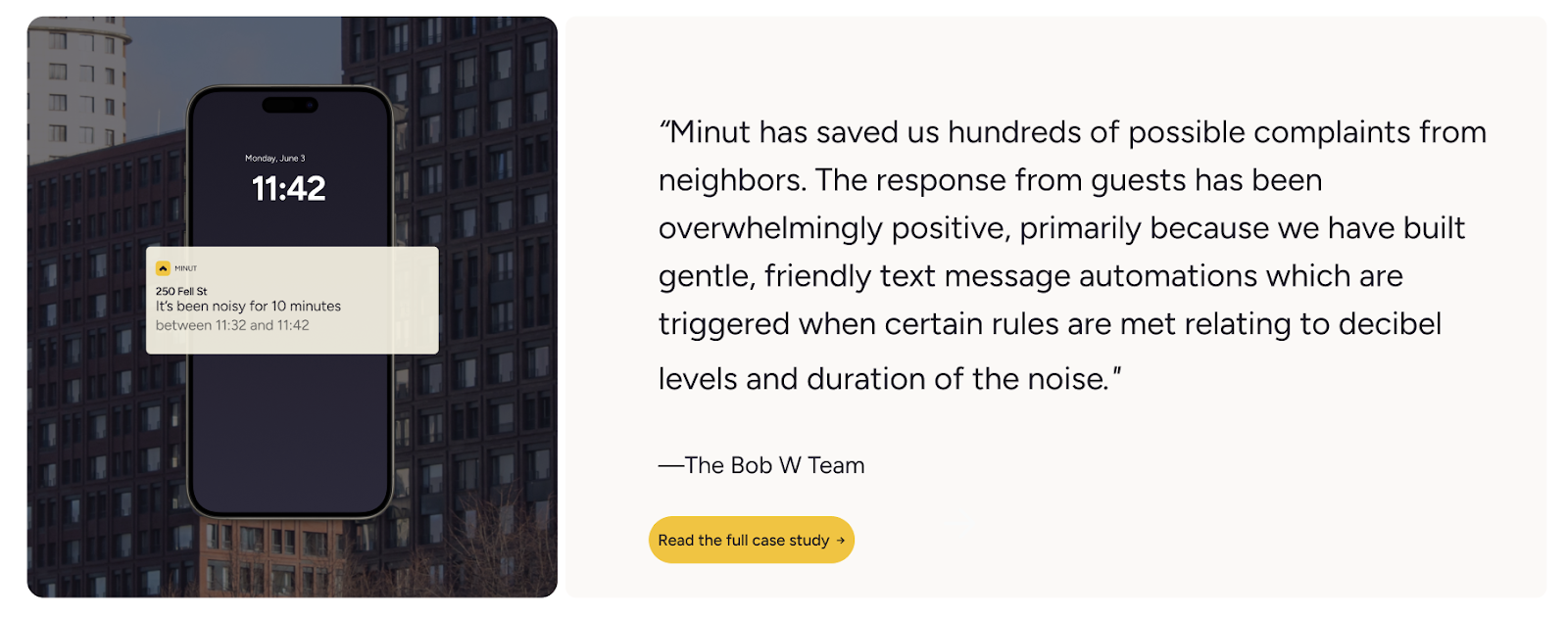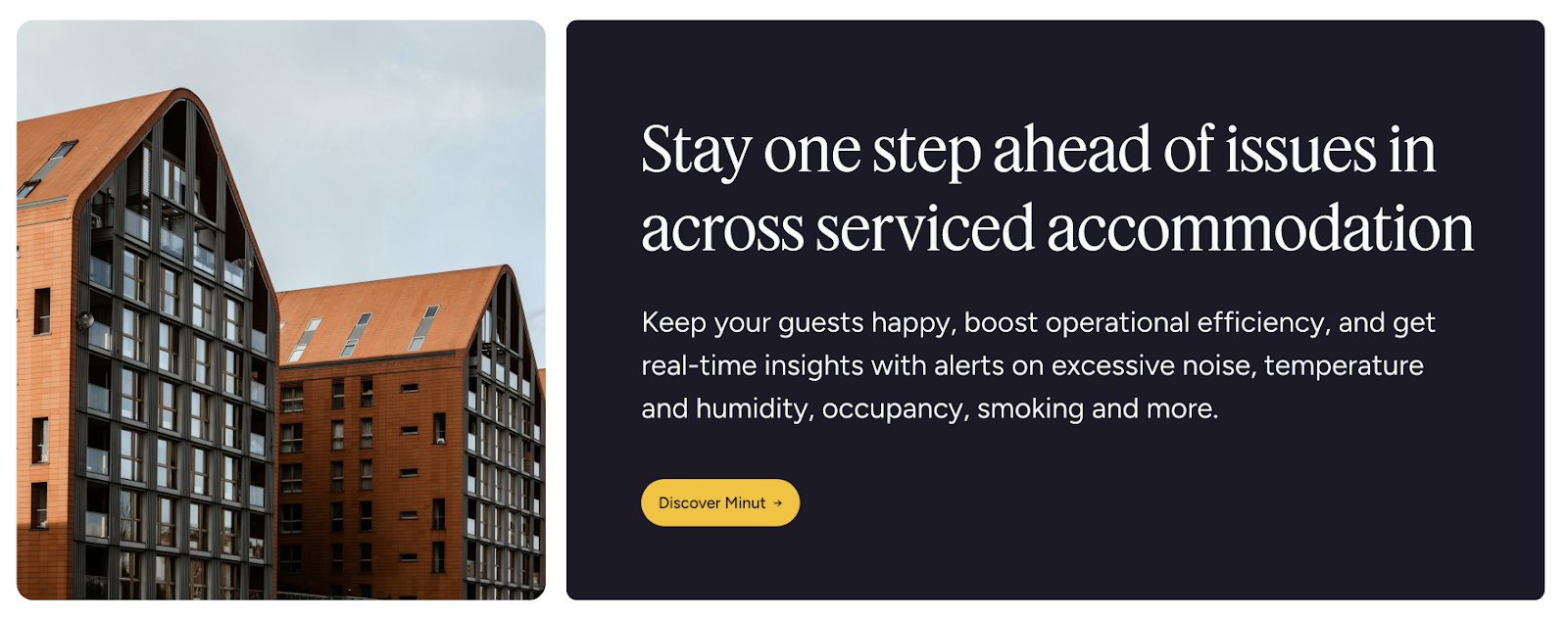


Managing serviced accommodation isn't the same as running a hotel or listing a short-term rental. The operational demands are unique, and the technology stack you choose can either streamline your processes or complicate them.
In 2025’s market, guests expect seamless experiences from booking to check-out. To meet these expectations, property managers need systems that are flexible, integrated, and tailored to the serviced accommodation model.
The serviced accommodation sector has demonstrated remarkable growth and adaptability, with occupancy rates reaching 80% across the UK. The industry was also valued at £12 billion globally as of 2025, with projections for continued growth.
This guide breaks down the essential components of a tech stack that works for serviced accommodation. We'll explore the tools that enhance efficiency, improve guest satisfaction, and support your business growth.
Serviced accommodation sits between traditional hotels and short-term rentals. These units are fully furnished, designed for stays of a few nights to several months, and often include services like weekly cleaning, linen changes, and 24/7 guest support.
Unlike STRs, serviced apartments operate under structured processes and deliver a consistent guest experience. Unlike hotels, they offer more space, privacy, and self-sufficiency.
Many traditional STR managers are investing in the serviced accommodation industry, which is a part of what’s led to the industry’s growth. Key reasons include:
Serviced accommodation is now a proven asset class with repeatable demand. But to manage it well, operators need the right infrastructure behind the scenes, starting with software.
Many serviced accommodation operators start with hotel-grade software or adapt STR tools. But most of the time, neither is a good fit.
Legacy hotel systems are built for fixed inventory, nightly stays, and on-site staff. Serviced accommodation doesn’t work like that.
Serviced accommodation requires systems that support lean teams, remote access, and automation. Hotel software wasn’t designed for that.
Serviced accommodation lives in the middle, so it needs a tech stack that’s built for hybrid operations, not legacy processes.

The serviced accommodation model demands more than a basic booking tool. You need connected, reliable systems that support flexible stays, lean operations, and a consistent guest experience.
Here’s what actually works.
Your PMS should handle short and extended stays without extra work. Look for:
Examples: Mews, Hostaway, Guesty. All are built with flexible stay lengths and remote ops in mind.
To avoid double bookings and missed revenue, your channel manager should:
Some PMS platforms include this. If they don’t, choose one that integrates cleanly with your existing system.
Self-check-in isn’t optional anymore. Use digital access tools that:
Systems like Nuki, RemoteLock, or smart entry apps paired with your PMS will save time and reduce manual coordination.
Keeping track of cleaning, maintenance, and mid-stay requests manually creates problems fast. Look for tools that:
Tools like Breezeway or Operto are designed to support serviced accommodation at scale.
You can't be everywhere at once. Devices like Minut give you visibility without needing someone on-site.
You can:
These tools help protect your reputation, margins, and compliance obligations.
Not every tool that sounds useful actually helps. Some features look good in a sales demo but add friction in real operations.
Here’s what to steer clear of:
If you’re not running a 200-room hotel with a sales team, you don’t need a full customer relationship management system. Most CRMs built into PMS tools go unused and clutter the interface.
Focus on tools that support guest communication and review follow-up, not enterprise-level sales automation.
If you’re still adjusting rates manually across multiple platforms, you’re wasting hours every week. And if your software doesn’t support weekly or monthly pricing rules, you’ll miss out on long-stay bookings.
Choose a system that handles dynamic pricing or integrates with tools like Beyond or PriceLabs.
Tools that don’t sync with your PMS or booking channels often create confusion. You risk missed messages, duplicated replies, or delayed responses that affect the guest experience.
Use native messaging systems that connect directly to your calendar and booking data.
Avoid platforms that lock you into a rigid process. You need systems that adapt to your property type, not the other way around.
If your PMS can’t support mixed lengths of stay, connect to your smart locks, or automate basic tasks—it’s not built for serviced accommodation.
If you're managing a mix of serviced apartments, STRs, or aparthotels, your tech needs to support all of it without compromise. Many operators end up juggling disconnected tools just to keep things running. That’s inefficient and easy to fix.
If your current setup makes you work around its limitations, it’s probably not built for hybrid use.
Minut gives serviced accommodation operators real-time visibility into what’s happening inside each unit without needing someone on site. It’s a critical device when you’re managing different property types across multiple locations.
With Minut, serviced accommodation operators can:
As well as its stand-alone features, Minut also integrates with major PMS platforms and helps teams operate more efficiently, with fewer on-site interventions and faster response times.
If your portfolio spans serviced units, STRs, and aparthotels, you need systems that help you work smarter across all of them. That includes your intelligence layer.

The right tech stack should support your business now and keep pace as it grows. But too many operators end up locked into outdated tools that can't scale, don’t integrate, or take months to replace.
Here’s how to avoid that.
Your PMS and automation tools should connect with the platforms you already use—or plan to use. Look for systems that offer:
You shouldn’t need custom dev work just to run basic operations.
If a provider forces you to use only their in-house tools for payments, messaging, or analytics, that’s a red flag. Flexibility matters. You want to choose best-in-class tools that work well together, not settle for second-best because you’re locked in.
You don’t need every bell and whistle from day one. What matters is the ability to turn on features when you need them, add new units quickly, and support different stay lengths without breaking the system.
The best platforms evolve with you. They don’t ask you to rebuild your ops every time you scale.
Switching systems is painful. Take the time to audit what works, what doesn’t, and where your biggest inefficiencies come from.
If your current tools can’t support your growth, fix that now—not after the problems get bigger.
For serviced accommodation operators, the right tech stack should match how you actually run your business—across short and extended stays, serviced units, aparthotels, and everything in between.
Systems that are flexible, well-integrated, and built for real-world operations will save time, reduce errors, and let you scale with confidence.
If you're rethinking your setup or starting to grow, audit your stack now. Focus on tools that support automation, remote control, and compliance—because that’s what makes operations smoother and more sustainable.
Minut gives serviced accommodation operators full visibility over units, with real-time monitoring, automation triggers, and seamless integrations with leading PMS platforms.
